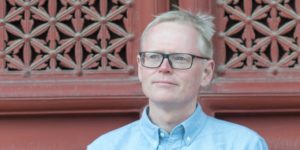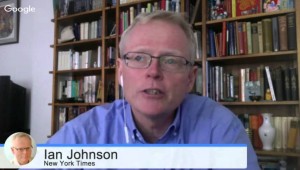
This month the provisory agreement for cooperating on the nomination of bishops between the Vatican and the Chinese government is up for renewable. Journalist Ian Johnson, author of The Souls of China: The Return of Religion After Mao, explains why the deal was for the Roman-Catholic church an “understandable gamble,” according to the NCR.
NCR:
Ian Johnson, a Pulitzer Prize-winning author and journalist for The New York Times and the New York Review of Books who has spent much time in the country, told the Austrian radio station ORF Sept. 2 that the “status quo” that existed before the agreement “did not work” and that “critics must also recognize that the old method did not succeed, that it failed.”
Johnson added that the agreement also came at a time when there were “fewer and fewer priests and fewer and fewer religious people in China.” The Church, he said, “was in freefall.” He argued that it was “fine to criticize the Pope, but people must also understand that he had to act and try something to counteract this reality.”
Precise details of the provisional agreement, which comes up for renewal on Sept. 22 two years after it was signed, have still to be published but it is thought to give more powers to the Chinese authorities to appoint new bishops. The Pope is believed to be able to veto their choices, though not unlimitedly….
Johnson, however, argued that the Vatican’s “understandable gamble” to sign the agreement came about because of increasingly difficult circumstances. “When it is difficult to consecrate bishops, or to ordain priests, or when you do not have legitimate priests to keep the Church going, it becomes very difficult for the Church to progress,” he said.
He conceded that the agreement “has not yet worked as the Vatican had hoped” but he believed it is too early to make a final judgment. He hypothesized that if an agreement with China had been made 20 or 30 years ago, it would be possible to see success now, echoing Cardinal Parolin’s call in 2019 to take a longer perspective given that “history was not built in one day; history is a long process.”
Father Bernardo Cervellera, the director of AsiaNews who has served as a missionary in China, noted that the “old method” Johnson mentions — the Vatican’s tough stance on religious freedom without the help of formal diplomatic relations — had certainly led to a “very difficult situation,” such as illegitimate bishops and priests and division, but he did not understand how that approach was a failure except in a diplomatic sense. …
From Beijing’s point of view, the agreement has also been challenging, according to Johnson, who said the regime has found it “very difficult” to allow an external organization like the Vatican to determine clerical affairs in China — a factor that perhaps explains why state media have said very little publicly about the deal.
“The interests of the Vatican and those of China differ widely,” he said, but both he and Father Cervellera agree that one motivating factor for Beijing is the elimination of the underground Church. …
Johnson believes that the length of the process of unifying the Church will be determined by these challenges on both sides. The Vatican, he said, hopes the divisions will be overcome and “the Church become younger, more flexible, stronger.” But he believes it will not be an easy task because the distrust towards the official church remains great.
“There is a lot of distrust in the same city, in the same village, between the underground Church and the state church,” Johnson said. “It is unrealistic to think that they will all become one. It will take a long time.”
Ian Johnson is a speaker at the China Speakers Bureau. Do you need him at your (online) meeting or conference? Do get in touch or fill in our speakers’ request form.
Are you looking for more strategic experts at the China Speakers Bureau? Do check out this list.

